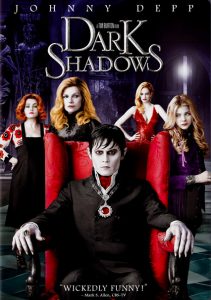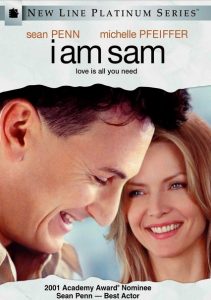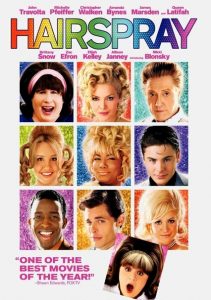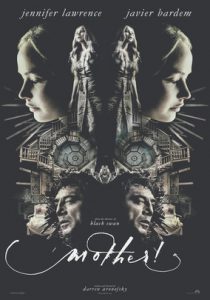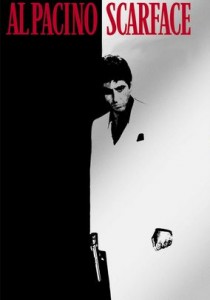Dark Shadows-2012
Director Tim Burton
Starring Johnny Depp, Michelle Pfeiffer, Helena Bonham Carter
Scott’s Review #1,203
Reviewed December 3, 2021
Grade: C+
Sometimes a great idea doesn’t pan out. On paper, relaunching the unique and gothic 1960s daytime television series Dark Shadows with a tribute on the big screen with even bigger stars sounds wonderful.
The endless possibilities and the inevitable nods to history are head-spinning.
Sadly, the film version of Dark Shadows (2012) directed by Tim Burton is miscategorized and misunderstood by all involved. It’s billed as a dark comedy rather than horror or even fantasy and comes across as more of a mockery than a real nod to the series.
It’s completely over-the-top and misses any of the wonder and the spookiness that made the long-ago black and white show a daily adventure.
I do not profess to have seen the entire series but I have watched much of the first season and understand the appeal. Fans will be disheartened by Burton’s botched attempts to recreate a great idea.
Depp, a frequent guest star in Burton’s film works, strikes out as the iconic character Barnabas Collins, the eighteenth-century vampire who awakens in the twentieth century though he’s not as bad as he was when he feebly stepped into the Willy Wonka character in 2005.
Yikes.
The only saving grace is the creative and magical visual effects and set design which provides enough imagination and macabre fascination to at least partly save this otherwise messy experience.
The plot gives a brief explanation of the history.
In eighteenth-century Maine, Barnabas Collins (Depp) presides over the town of Collinsport. A rich and powerful playboy, Barnabas breaks the heart of a witch named Angelique (Eva Green) who deviously makes him pay.
Angelique turns Barnabas into a vampire and buries him alive.
Two centuries later, Barnabas escapes from his tomb when builders are erecting a Mcdonald’s and finds the current 1970s Collinsport a very different place. His once-grand estate has fallen into ruin, and the dysfunctional remnants of his family have fared no better.
His resurrection creates complications and drama for the entire family.
Burton knocks it out of the park with the visuals.
The gothic mansion, in particular, is right up his alley and he embraces the possibilities with gusto. Every creak or wind sound heard within the mansion co-aligns with the dark and dreary purples and brown colors.
Frequent candles mark the proper mood and investigating the vast number of rooms was something to look forward to.
Since the rest of the film sucked I had nothing better to do than fully embrace and focus on the art and set designs.
Heavyweights like Michelle Pfeiffer, Helena Bonham Carter, and Depp do their best but oddly overact in nearly every scene. Their direction must have been skewed toward comedy instead of adding any meat or emotional relevance to the characters.
The original series created something strangely dramatic and compelling on a shoestring budget. There was a delicious haunting and grabbing nature that made you anticipate the next episode and who might fall victim to the vampire.
The film veers into a vastly different territory.
Burton and Depp’s Barnabas struts around emitting one-liners for intended giggles. The other characters appear to be dressed for Halloween and are dumb and morose.
The feeling I got was that of a retread to a situation comedy like The Addams Family rather than a horror soap to be taken seriously.
The sexual references and the occasional bloody vampire effects are okay but seem peppered in to justify the dark comedy.
Even an uninspired cameo by shock rocker Alice Cooper is perceived as a weak attempt to add something frightening or dangerous.
Unsurprisingly, Dark Shadows (2012) performed poorly at the box office and was derided by true fans of the series and almost every other film critic.
This caused Barnabas and his family to slink back into their coffins possibly for good.
What a shame.
